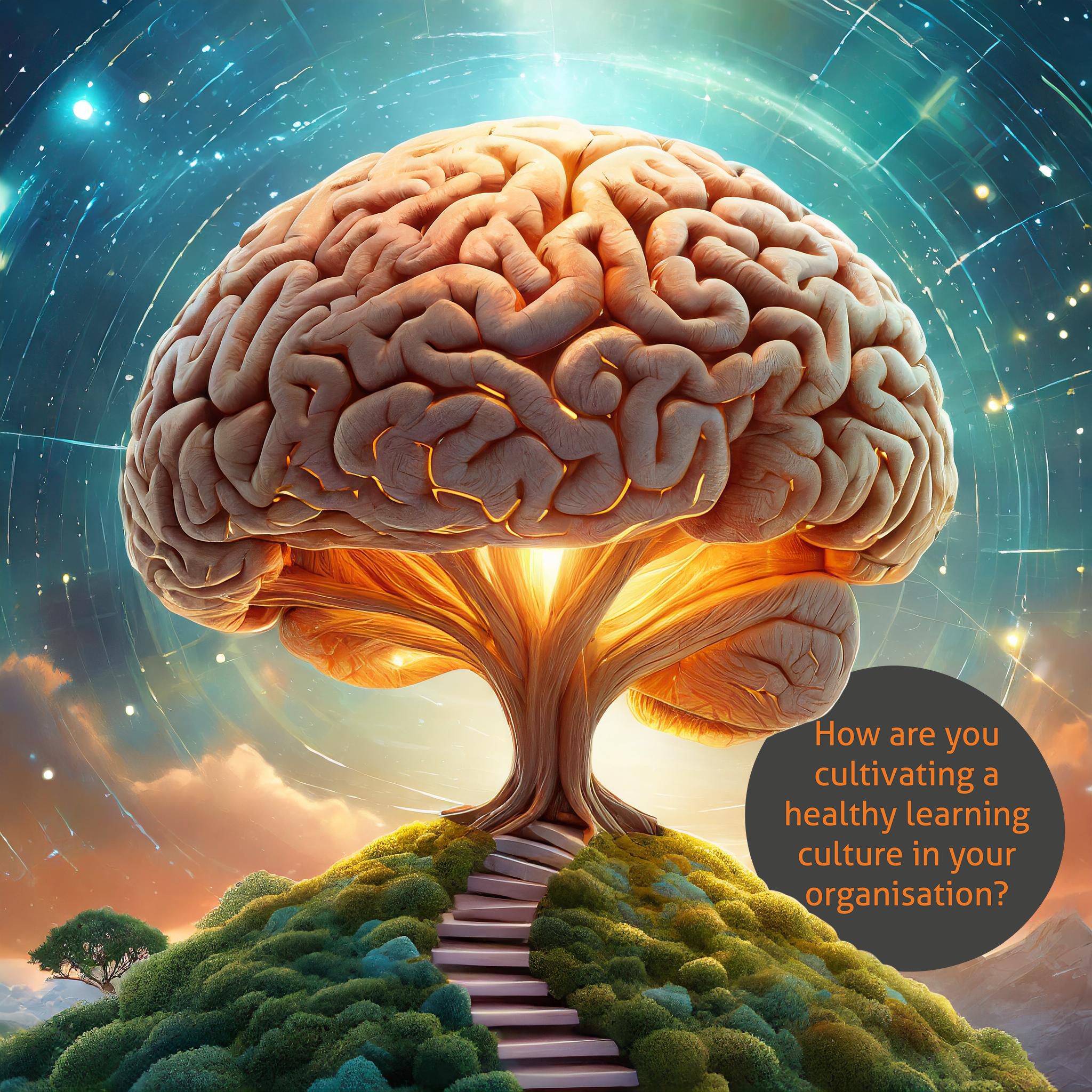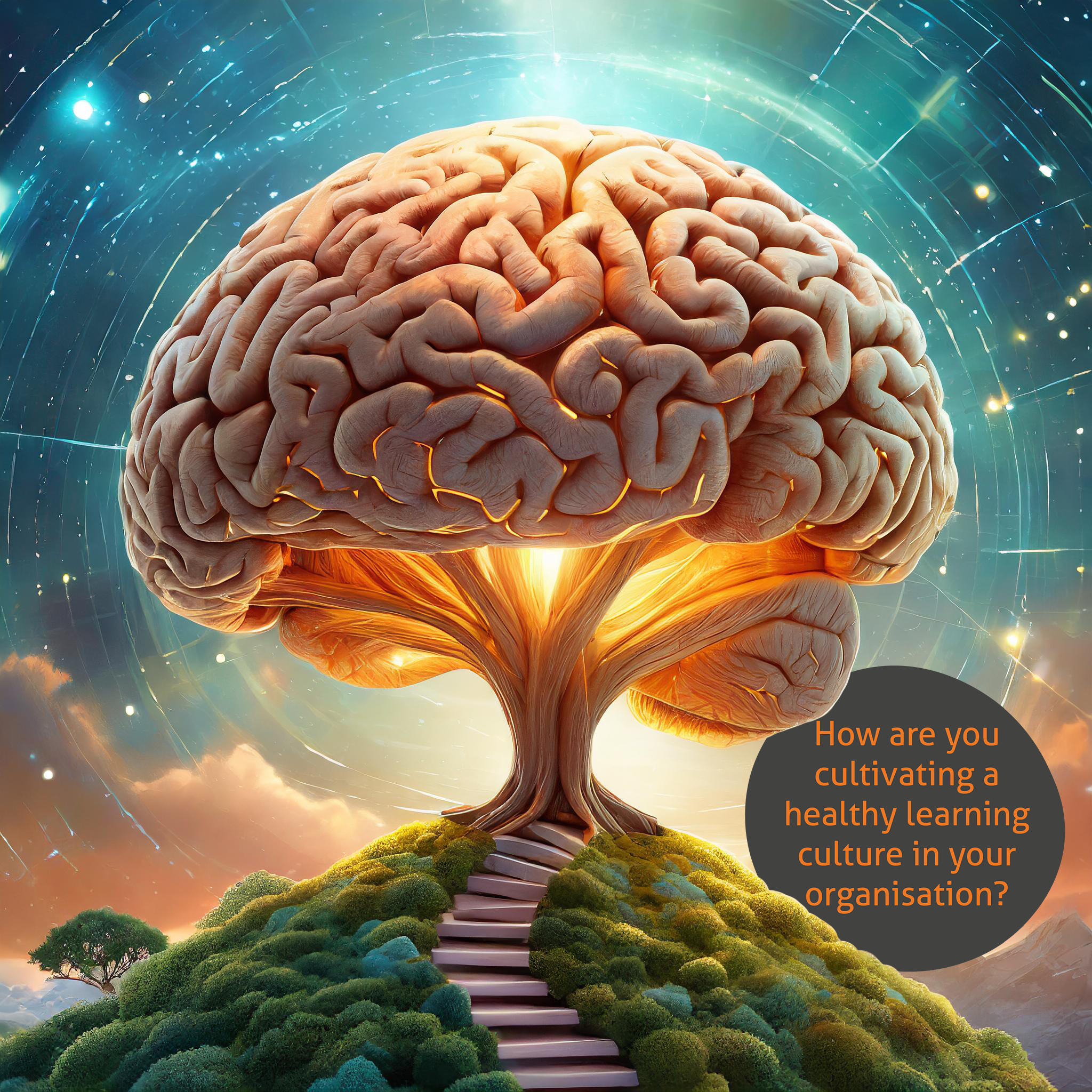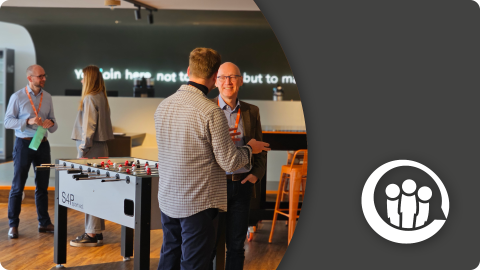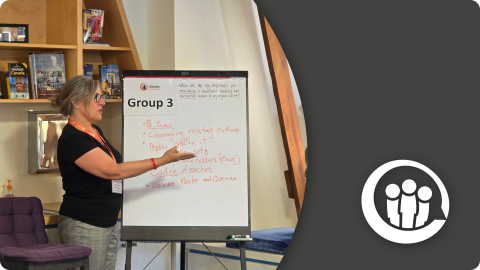Submitted by networkadmin on
When it comes to organisational development, Heads of Learning often see learning culture as a key component that shapes the trajectory of a firm's innovation, adaptability, and success.
31.2% of the Global Heads of Learning and Talent whose responses make up iVentiv’s Pulse data have consistently said that Learning Culture is one of their top priorities. But many of them are still asking ‘how do I make a learning culture a reality?’
How can you ensure that the learning culture within your organisation not only exists but thrives, fostering an environment where continuous improvement is not just encouraged but is a fundamental aspect of your organisational DNA?
This blog delves into why Global Heads see learning culture as so important within organisations, and explores strategies for their cultivation, as well as the implications on teams.

What is a learning culture?
There are several definitions of Learning Culture. According to Nigel Paine, Co-Presenter, Learning Now TV & Former Head of People Development, BBC, in a learning culture ‘learning is used to focus on organisational problems. It’s about shared learning, the shared generation of knowledge and shared problem solving.’
RiseUp , a leading learning software company, suggest that ‘a learning culture requires the whole organisation to be willingly engaged with learning’.
LearnUpon, meanwhile, says that a learning culture ‘is when an organisation puts a strong emphasis on encouraging its members to understand its values, practices, beliefs, skill sets, and conventions.’
The British Council, on the other hand, suggest that a learning culture ‘supports an open mindset, an independent quest for knowledge, and shared learning directed towards the mission and goals of the organisation.’
To many, a learning culture is instrumental in facilitating innovation, enhancing competitiveness, and ensuring the long-term sustainability of the organisation. Andrew Rahaman, writing for Forbes, says that it has a multitude of benefits: it enhances company culture, fosters an environment of continuous improvement, and increases overall productivity.
In a rapidly changing global environment, these definitions would agree, the ability for an organisation to learn and adapt is not just an advantage but a necessity. But why is that?
Learning Culture: What are the Key Components?
A study by Deloitte on high-performing learning organisations found that they were 46% more likely to innovate, 58% more likely to be future-ready, and 37% more productive.
Why is that?
Nigel Paine says that it’s because ‘people feel engaged and that they belong to an organisation.’
In a similar way, author Matt Tenney, says ‘when team members grow within a learning culture, they develop improvement mindsets and pursue opportunities to learn and share knowledge with their teams, which can positively impact the health and future success of an organisation.’
When it comes to cultivating learning cultures, Lital Marom, writing for Forbes, suggests one key starting point: ‘understand that the way people learn has changed. Learning has become much more learner-driven and there are now many more avenues for learning than in the past.’
There is a lot of advice out there for L&D leaders who want to instil a learning culture, but the core, consistent ideas include:
- Leadership Commitment: Leaders must not only advocate for but also embody the principles of a learning culture. Lital says it is incumbent on leadership teams to harness employees’ interests and goals and guide them in a direction that matches the organisation’s needs.’ Their commitment to their own development, as well as their active encouragement of team learning, sets a precedent throughout the organisation.
- Learning Opportunities: James McKenna, educator, speaker and consultant writing for Harvard Business Review argues that people need ‘the time and space to learn’ as well as ‘options to learn and apply key learning behaviours.’ Providing diverse learning opportunities, including formal training, workshops, mentorship programs, and cross-functional projects, ensures that employees have access to the resources they need to grow. Making these learner-driven will only increase engagement. But where to start? Lital says ‘align with employees’ unique personal goals’ and match ‘these goals to the needs of the organisation.’
- Make learning a habit: Lital suggests that ‘in order for organisations to stay ahead of the game, employee learning needs to be proactive, not reactive.’ How do you create learning habits in your workforce? Make learning accessible, make it easy, make it meaningful.
- A Safe Environment for Experimentation: Vidya Krishnan, Chief Learning Officer at Ericsson, says that learning and skill-building happens on the way to solving problems. Cultivating an atmosphere where experimentation is encouraged and failure is not penalised but viewed as a learning opportunity is essential for fostering innovation. Andrew Rahaman writing for Forbes Magazine says that if employees learn to see failure as a learning experience, ‘they will likely learn to take more risks, which can help your company be more innovative.’
The Good, the Bad, the Ugly of Organisational Learning Cultures
The Good:
The goal for Learning leaders is to create a robust learning culture that has a profound impact on team dynamics and performance. Teams in organisations with strong learning cultures, the argument goes, are more collaborative, innovative, and resilient. Matt Tenney says that when you have a culture that ‘embraces learning from mistakes, as well as accruing knowledge beyond the scope of an employee’s particular job duties, this is where you really see innovation shine.’
These teams, he says, are adept at leveraging their collective knowledge to solve problems, adapt to new situations, and overcome challenges.
Other research indicates that a positive learning culture enhances team morale and engagement, as team members feel valued and supported in their personal and professional growth journeys. The British Council have found that employees who spend time learning on the job are ‘47% less likely to be stressed and 21% more likely to feel confident’ at work.
The Bad:
No learning culture?
A negative / non-learning culture, according to Nigel Paine, ‘is where people sit around and wait for someone to tell them what to do. These organisations tend to be top down: the message comes from the top and your job is to do it.’
What kind of effect can that have on employees and the organisation at large?
Bryant Nielson, writing for LinkedIn, suggests that non-learning organisations see learning as a ‘requirement’ rather than a ‘meaningful learning experience’; companies must ‘embrace, not silo’ learning in order for the business and its employees to thrive.
The Ugly:
Non-learning cultures stifle growth, punish failure, and undervalue knowledge sharing — all of which can have detrimental effects on an organisation.
Employee surveys suggests that, without a learning culture, attraction and retention of talent suffer; Matt Tenney says that strong learning cultures meet the ‘core needs of growth and mastery for employees and demonstrate to potential hires that a company will invest in their future growth and development.’ In a study by Kaltura, a leader in Video Experience Cloud, ‘93% of employees say they will stay longer at a company when that company invests in their career development.’
Similar studies indicate that companies also risk falling behind when it comes to productivity and new ideas; organisations are 46% more likely to innovate when they have positive learning cultures according to research by Deloitte. A study by LinkedIn further suggests that employees who spend time learning on the job are ‘39% more likely to feel productive and successful’, increasing corporate agility.
What steps can you take to cultivate and sustain a positive learning culture that aligns with your organisational goals and values?
The consensus among L&D leaders and researchers is that the journey towards establishing a vibrant learning culture is both challenging. It requires a commitment to continuous improvement, not just from the employees but from leadership too. That same research however, suggests that the benefits of a learning culture — including enhanced innovation, improved team dynamics, and increased organisational agility — are indispensable in today’s ever-evolving business landscape.
Arguably, the cultivation of a positive learning culture could be an investment in the organisation's most valuable asset: its people. By fostering an environment that values learning, organisations can ensure their continued growth, adaptability, and success in the global market.











